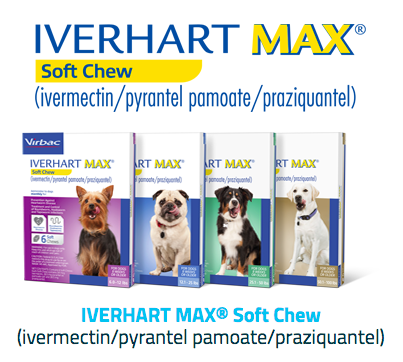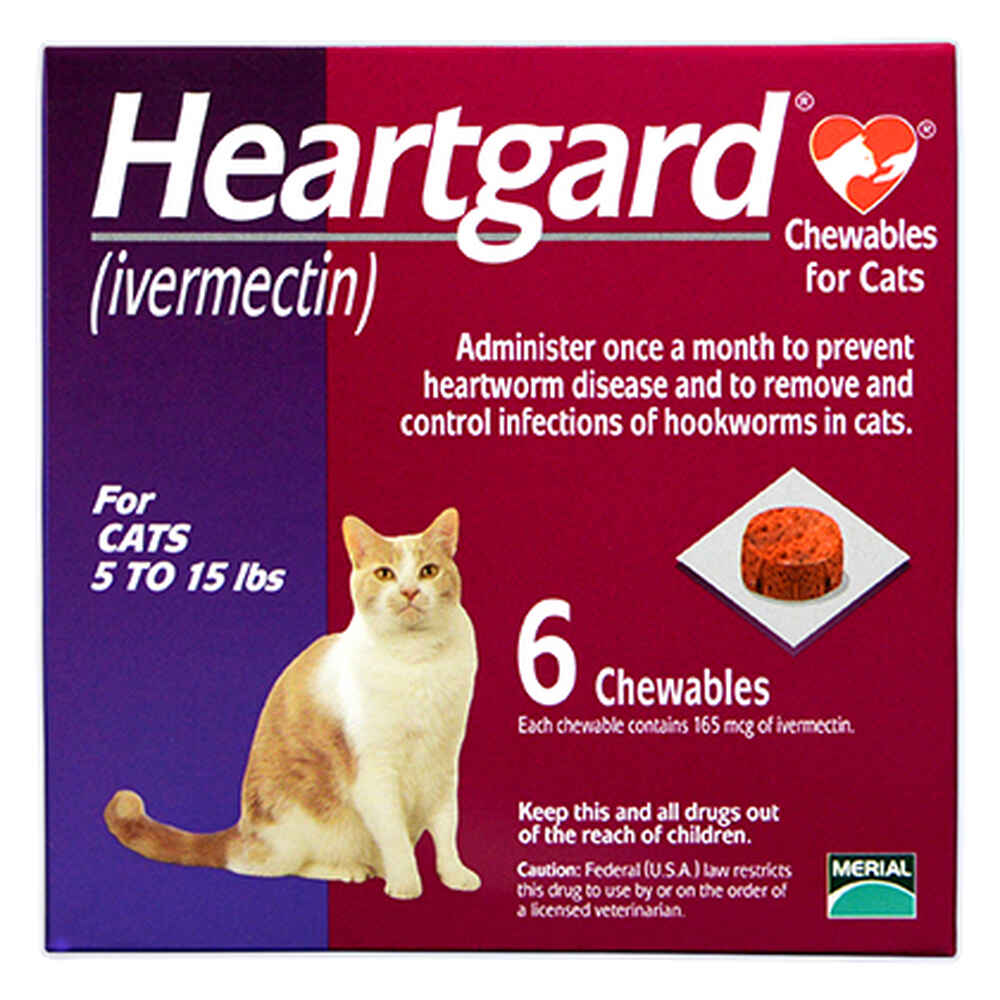Ivermectin is a prescription drug available as a veterinary medication and for humans. It is an anthelmintic drug that works by meddling with the muscle and nerve functions of disease-causing worms that paralyzes and kill them. Ivermectin is an antiparasitic medication that belongs to the avermectin class. It is a prototype for this class of antiparasitic agents.
What is Ivermectin?
Ivermectin is an antiparasitic drug. Ivermectin is sold under different brand names. It is used to prevent infections caused by parasites, heartworm prevention and to treat infections caused by ear mites. Ivermectin causes neurologic damage to the parasite causing paralysis and death of the worm.
Ivermectin is available in the form of tablets, chewable for heartworm prevention, topical solution for ear mite treatment and injectable solution for certain parasitic infections. FDA-approved topical Ivermectin treatment for ears to use in cats and kittens over 4 weeks of age. Oral and injectable Ivermectin should not be used in patients under 6 weeks of age.
Why is Ivermectin Used?
Most commonly Ivermectin is used as a heartworm preventive drug in dogs and cats. Ivermectin is also used off-label for treating various internal and external parasites. For example, Ivermectin can also be used for the treatment of mites (ear mites, scabies, demodectic mange), intestinal parasites (roundworms and hookworms) and capillaries. In the case of cats, Ivermectin may also be prescribed to treat cat scabies and ear mites. In veterinary medicine, many medications are usually prescribed for off-label use.
Does Ivermectin kill roundworms? Ivermectin not only kill roundworms leaving the host unharmed but it also kills many other kinds of parasitic worms. And it effectively treats infections caused by many arthropods and mites with minimal side effects.
Ivermectin for Intestinal Parasites

In 1980, Ivermectin was launched as the most effective broad-spectrum anti-parasitic medication. The introduction of Ivermectin represented a complete revolution in parasite control for dogs, horses and livestock. This drug transformed heartworm prevention from a daily pill to a monthly dose.
Ivermectin is excellently effective against most intestinal worms excluding tapeworms, most mites and lice. This drug can effectively kill larval heartworms but does not kill adult heartworms however it can reduce their lifespan.
Overall, ivermectin is considerably effective against intestinal parasites, heartworm microfilaria and developing larvae, mites, lice, horn flies and bots. Most commonly this drug is prescribed to kill intestinal parasites such as whipworms, hookworms and roundworms.
Tapeworms
Out of all internal parasites, most distinguishable among the pets are tapeworms. Usually, dogs develop these parasites called tapeworms in their intestines when they consume wild animals infected with tapeworms or fleas or eat infected fleas. After the dogs eat the flea, the egg of the tapeworm hatches and gets attached to the intestinal lining of the dogs. Tapeworms can conveniently transfer from fleas to dogs that’s why it is important to consider tapeworm prevention extremely.

In case you observe any tapeworm-like symptoms in your dog’s stool or find your dog rushing on the ground, it’s time to get them diagnosed for possible worms and infections. If your veterinarian diagnoses positive signs of tapeworms, they will suggest an Ivermectin regime to get rid of the worms.
Does Ivermectin kill tapeworms? The regular use of Ivermectin and Pyrantel pamoate along with Praziquantel-containing products can significantly help manage tapeworm infections and their replication. This combination medication is a safe and effective treatment for these kinds of parasitic infections.
Heartworm
Heartworms are the most troublesome and preventable kind of worms found in dogs. These worms transmit through mosquitoes and it is almost impossible to keep your dog away from mosquitoes so veterinarians suggest consistent preventatives to avoid heartworm disease.
The heartworms grow and replicate within the heart of dogs and may cause worrisome lung disease, heart failure and organ damage etc. In certain cases, heartworm disease may get fatal resulting in the death of the dogs.
Averting heartworm development is the only option because the treatment of heartworm disease is lengthy and expensive. It is recommended to get your dog tested regularly to make sure the matter is under control.
What Is Heartworm Disease?
Heartworm infection is a serious disease that may lead to heart failure, serious lung disease, organ damage and death in pets including cats, dogs and ferrets. This disease is caused by a parasitic worm known as Dirofilaria immitis. These worms transmit through mosquito bites.
Dogs are the natural hosts for heartworms which means the parasite can grow into adult worms and produce their offspring to continue the life cycle. The common symptoms of heartworm disease include decreased appetite, weight loss, fatigue after mild activity, reluctance to exercise and mild persistent cough.
After the treatment with Ivermectin and other drugs, the adult heartworm die and are carried by the blood to the lungs where the worms stay in small blood vessels. The worms decompose here and get absorbed by the body over several months.
To avoid heartworm treatment and consequences it’s better to follow a preventative program. Heartworm disease can only be voided through the appropriate regular use of preventative drugs prescribed by the veterinarian.
Does Ivermectin Kill Heartworm Larvae?
Commonly Ivermectin is known as heartworm preventative as it eliminates the tissue stage of heartworm larvae. This drug is a monthly anti-parasitic agent that incapacitates, kills and treats various infections caused by gastrointestinal parasites.
Ivermectin for Heartworm Prevention
Ivermectin medication may be prescribed in combination with certain other deworming medications. Ivermectin+Pyrantel is an antiparasitic medication prescribed to prevent, treat and control hookworm and roundworm in dogs. This combination is given orally by mouth as a flavoured chewable tablet.
Eradicating heartworm larvae during an active heartworm infection. The Ivermectin doses prescribed for the treatment and prevention of heartworm disease are around 50 times lower than the doses prescribed for other parasites.
A monthly heartworm preventive medication is not sufficient for pets who are getting heartworm prevention with an additional gastrointestinal. You may be surprised to see tapeworms. The active ingredient used in heartworm medication to prevent heartworms is not effective against heartworms.
For heartworm prevention, Ivermectin is given monthly, demodectic scabies treatment daily or every other day and most mites every week. If you accidentally forget the heartworm prevention dose, make sure you give it as soon as you realize the missed dose. If the dose is over 2 weeks late, heartworm protection has been negotiated.
If the dose is mistakenly bounced in any parasite protocols, continue with the next dose and do not give double doses to make up for the missed one. Cleaning dog waste properly, flea control, regular testing and taking necessary preventive measures are essential to keep your dogs and cats safe and avoid worm development. Also, you should be careful about the property medication to prevent heartworms. And keep them away from small and wild animals to prevent the development of roundworms.
How to give Ivermectin?

Ivermectin is accessible in the form of chewable tablets, tablets, topical liquid for ear mite treatment and injectable that is used by veterinarians only. It can be administered orally with or without food.
Follow the instructions provided by your veterinarian regarding the usage of medication. If your dog seems sick or vomits after taking this medication, when taken on an empty stomach, make sure to give the next dose with food.
In case, the vomiting or sickness continues, talk to your veterinarian. Usually, this medication starts working within one to two hours, however, the effects of the drug may not be noticeable sometimes so it is recommended to get laboratory tests done to evaluate the effectiveness of the medication.
Potential side effects of Ivermectin
Generally, ivermectin is well tolerated. Usually, side effects occur as a result of a toxic dose. This drug may cause some side effects if given at higher doses for example for mite infestations. Some breeds including collies are sensitive to moderate doses of Ivermectin and may experience side effects at lower doses.
If you notice the side effects in your dog such as upset stomach, vomiting, diarrhoea, dilated pupils, dazed demeanour or unsteadiness while walking, talk to your veterinarian. Ivermectin may also cause a shock-like reaction in dogs in rare cases. If it happens seek your veterinarian’s advice as soon as possible. In pets with kidney disease or liver disease, the effects may be for longer periods.
Possible Risk Factors of Ivermectin Treatment

Ivermectin should not be given to dogs younger than 6 weeks of age, in dogs without an active heartworm infection or without consulting a veterinarian. Your veterinarian can give you the best advice regarding the safety of Ivermectin use in your pet.
Some dog breeds such as sheepdogs, collies and sheepdog or collie crossbreeds are more sensitive to this drug than others. Typically this sensitivity is because of a specific genetic mutation that makes them less capable to tolerate high doses of Ivermectin. Ivermectin doses prescribed for heartworm prevention are usually safe to use in these breeds. DNA testing can be performed to determine whether the pet has a genetic mutation or not that is responsible for Ivermectin adverse reactions.
Australian shepherds, Shetland sheepdogs, Collies, Old English sheepdogs and Merle-coloured Pomeranians are considered at greater risk for Ivermectin toxicity. However, not all dogs who belong to these breeds are sensitive to Ivermectin. It is recommended to test your pet using a low dose.
Ivermectin Drug Interactions that you should be aware of
Certain medications can increase the effects of Ivermectin medication in the brain of pets. These medications include Nifedipine, Amlodipine besylate, Erythromycin, Cyclosporine, Itraconazole and Ketoconazole.
When high Ivermectin doses are given to treat mite infestations, The common flea preventive treatment Spinosad should not be administered. It is applicable to high dose protocol used for skin parasites treatment. Spinosad can be safely used in combination with the low Ivermectin doses prescribed as heartworm preventives.
Make sure your veterinarian knows about any kind of medications, herbal therapies, vitamins, supplements or any product you are giving to your pet.
